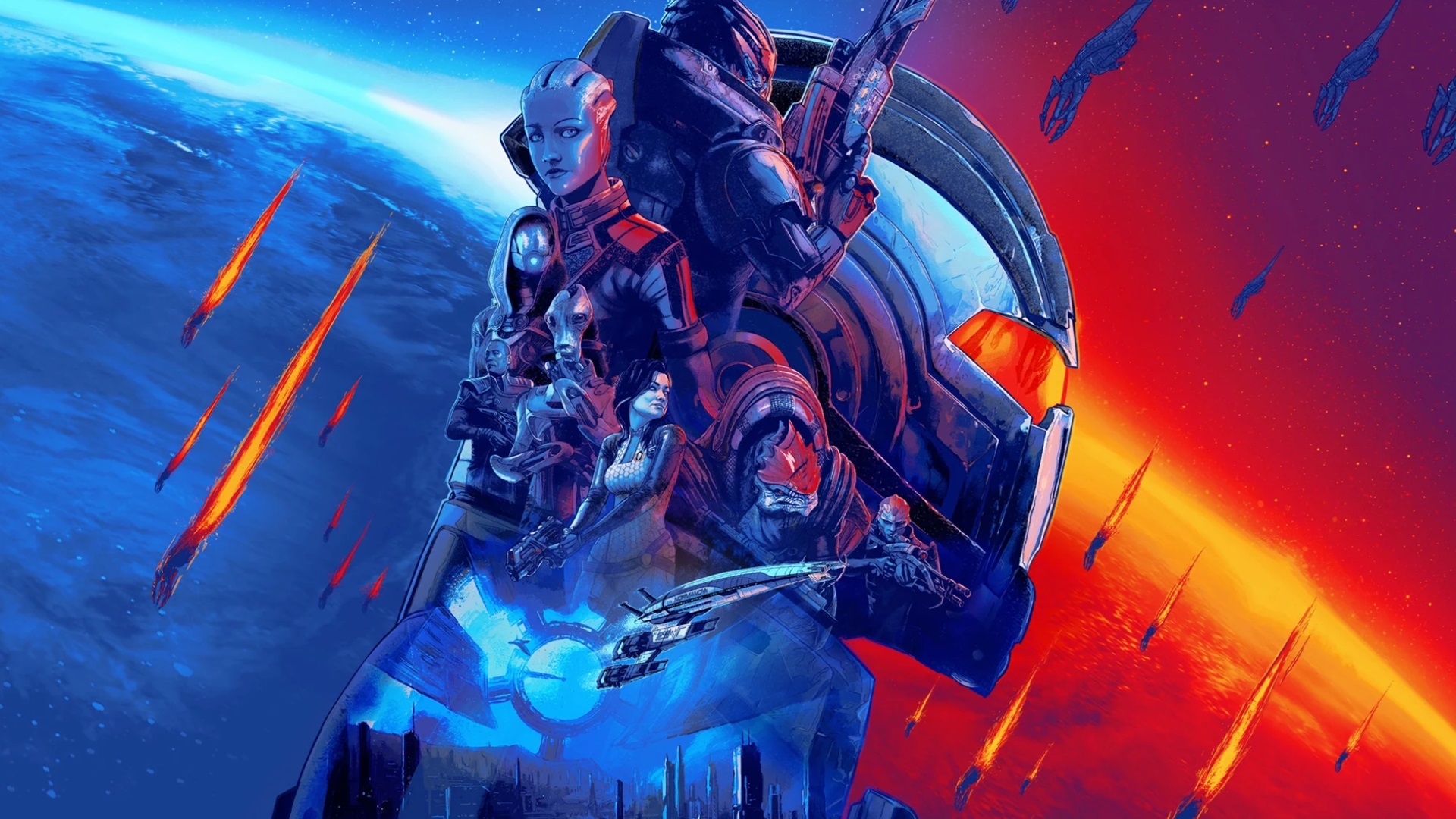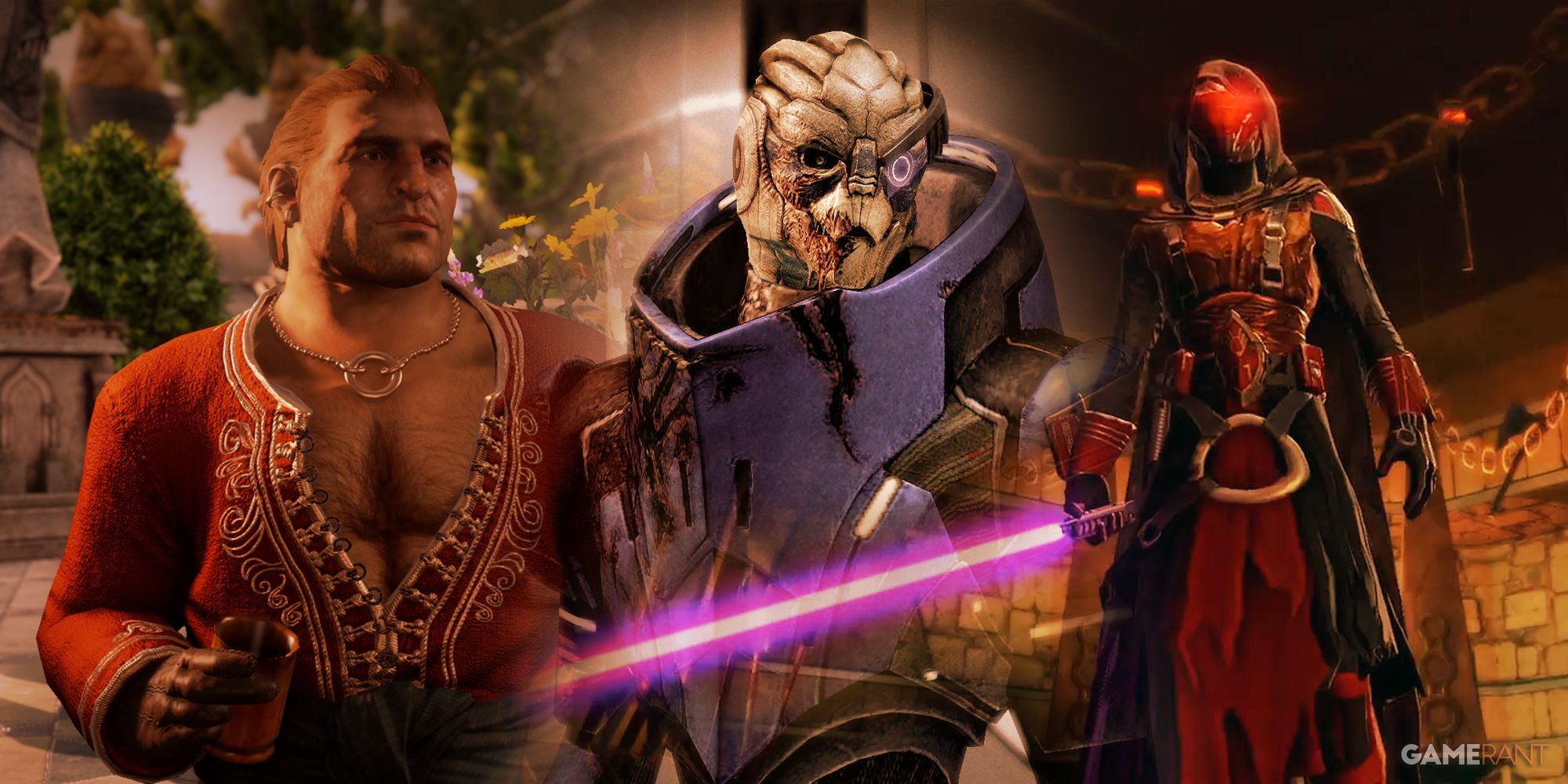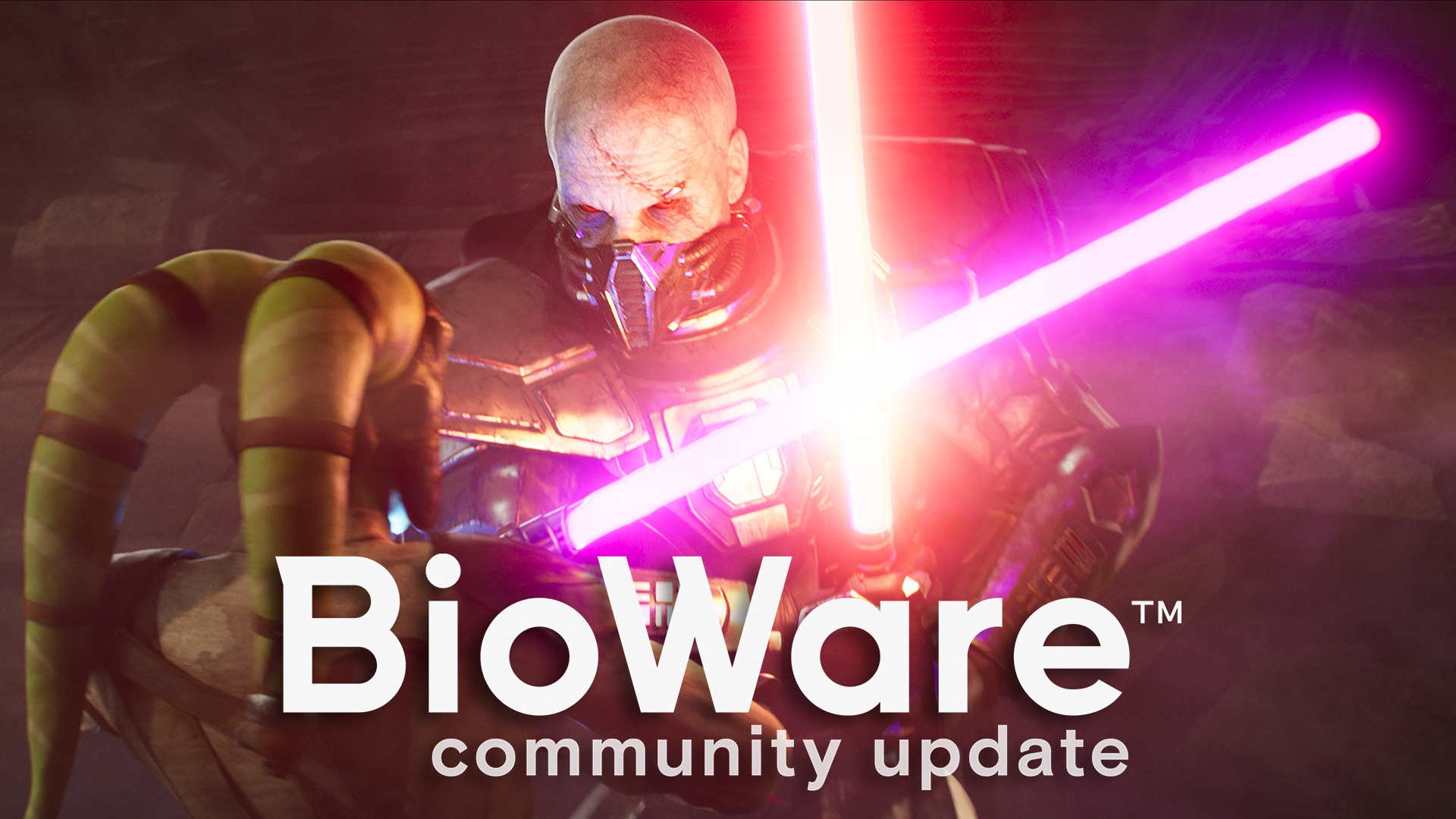Alright folks, let’s dive into something that’s been close to the hearts of gamers worldwide for decades. BioWare, the name itself evokes a mix of nostalgia, excitement, and sometimes, well, frustration—but in the best way possible. This iconic gaming studio has been crafting some of the most unforgettable stories in the video game industry, and today, we’re going to take a trip down memory lane to explore their rise, their triumphs, and even their challenges. If you’re a fan of epic narratives, deep characters, and worlds that feel alive, you’re in the right place.
You might be wondering why BioWare stands out in such a crowded gaming landscape. Well, buckle up because this journey is packed with twists, turns, and moments that have redefined what storytelling in video games can achieve. From their early days to becoming one of the most celebrated names in the industry, BioWare’s journey is nothing short of inspiring. So, whether you’re a long-time fan or just curious about their impact on the gaming world, this article’s got you covered.
Before we dive deeper, let me just say this: BioWare isn’t just about games. It’s about creating experiences that stay with you long after you’ve put down the controller. Their ability to blend compelling narratives with immersive gameplay has set them apart, and we’ll be exploring how they’ve managed to achieve that magic formula. Now, let’s get started, shall we?
Table of Contents
- The Early Days: How It All Began
- The Breakthrough: Baldur's Gate and Beyond
- Mass Effect: The Rise of a Gaming Legend
- Dragon Age: A New Universe Unfolds
- Star Wars: Knights of the Old Republic—A Galaxy Far, Far Away
- Facing Challenges: The Dark Side of Development
- Acquisitions and Expansion: BioWare Joins the EA Family
- Legacy: The Lasting Impact of BioWare’s Games
- The Future: What’s Next for BioWare?
- Community and Fanbase: Why BioWare Fans Are Special
The Early Days: How It All Began
Back in 1995, three brilliant minds—Ray Muzyka, Greg Zeschuk, and Augustine Yip—decided to take a leap of faith and create something extraordinary. These doctors by trade had a shared passion for gaming, and they believed they could bring something fresh to the table. And boy, did they deliver! BioWare started as a small studio with big dreams, focusing on creating games that were not just about gameplay but also about storytelling. They wanted to create worlds that players could lose themselves in, and they did just that.
From Tabletop to Digital
One of the key factors that set BioWare apart early on was their deep understanding of tabletop RPGs. Games like Dungeons & Dragons influenced their approach to storytelling, and this translated into rich, character-driven narratives that resonated with players. Their first major release, Shattered Steel, may not have been a massive hit, but it laid the foundation for what was to come. It was a stepping stone that allowed them to refine their craft and prepare for the games that would define their legacy.
As they grew, BioWare’s focus on character development, moral choices, and branching storylines became their signature. This approach would later become the backbone of their most successful franchises, but it all started with a small team of passionate individuals who believed in the power of storytelling.
The Breakthrough: Baldur's Gate and Beyond
Fast forward to 1998, and BioWare was about to make its mark on the gaming world with Baldur's Gate. This game was a game-changer, pun intended. It wasn’t just another RPG; it was a masterpiece that combined the depth of tabletop RPGs with the accessibility of video games. Players were introduced to the Forgotten Realms, a vast and detailed world filled with rich lore, memorable characters, and complex storylines.
Why Baldur's Gate Was a Big Deal
What made Baldur's Gate so special? Well, for starters, it was one of the first games to truly embrace player agency. Your choices mattered, and they had consequences that rippled through the game world. Whether you were playing as a noble hero or a morally ambiguous anti-hero, the game adapted to your playstyle. This level of freedom was unheard of at the time, and it set a new standard for RPGs.
Baldur's Gate wasn’t just a commercial success; it was a critical darling as well. Critics praised its storytelling, character development, and attention to detail. It was the game that put BioWare on the map, and it paved the way for future titles that would continue to push the boundaries of what video games could achieve.
Mass Effect: The Rise of a Gaming Legend
Let’s talk about one of BioWare’s most iconic franchises: Mass Effect. When this game was released in 2007, it was like nothing we’d ever seen before. It was a sci-fi epic that combined RPG elements with third-person shooter mechanics, creating a unique and immersive experience. The game introduced us to Commander Shepard, a character whose journey would span multiple games and leave a lasting impact on the gaming world.
Why Mass Effect Still Matters
Mass Effect wasn’t just about blowing things up; it was about the choices you made and the relationships you built. From the intense space battles to the heartfelt conversations with your crew, every moment felt meaningful. The game’s dialogue system, known as the Paragon/Renegade system, allowed players to express their personality and shape the story in ways that felt truly personal.
As the series progressed, BioWare continued to refine their formula, introducing new characters, expanding the universe, and delivering some of the most memorable moments in gaming history. Whether it was the Citadel DLC or the emotional climax of Mass Effect 3, the series left an indelible mark on fans around the world.
Dragon Age: A New Universe Unfolds
While Mass Effect was conquering the sci-fi genre, BioWare was also making waves in the fantasy realm with Dragon Age. Released in 2009, this game introduced players to the world of Thedas, a dark and gritty fantasy setting filled with political intrigue, complex characters, and moral dilemmas. It was a fresh take on the fantasy genre, and it quickly became a fan favorite.
What Made Dragon Age Unique
Dragon Age stood out for its mature themes and unflinching portrayal of the harsh realities of its world. Unlike many fantasy games that focused on heroism and adventure, Dragon Age delved into the darker aspects of human nature, exploring themes like war, corruption, and prejudice. The game’s dialogue and decision-making systems allowed players to navigate these complex issues in ways that felt authentic and meaningful.
As the series expanded with Dragon Age II and Dragon Age: Inquisition, BioWare continued to push the boundaries of storytelling in the fantasy genre. Each game brought new challenges and opportunities, and the series remains one of BioWare’s most beloved franchises to this day.
Star Wars: Knights of the Old Republic—A Galaxy Far, Far Away
Let’s take a trip to a galaxy far, far away with Star Wars: Knights of the Old Republic. Released in 2003, this game was a collaboration between BioWare and LucasArts, and it was an instant classic. It took the iconic Star Wars universe and added BioWare’s signature storytelling and character development, creating a game that fans of both franchises could enjoy.
Why KOTOR Was a Smash Hit
Knights of the Old Republic was special because it allowed players to experience the Star Wars universe in a way that was both familiar and fresh. The game introduced us to new characters, locations, and storylines while staying true to the spirit of the franchise. It also featured one of the most iconic twists in gaming history, a moment that left fans reeling and cemented the game’s place in gaming history.
With its deep story, memorable characters, and innovative gameplay mechanics, Knights of the Old Republic became one of BioWare’s most celebrated titles and a beloved entry in the Star Wars canon.
Facing Challenges: The Dark Side of Development
Of course, no story is complete without its challenges, and BioWare’s journey has been no exception. Over the years, the studio has faced its fair share of obstacles, from development struggles to fan backlash. One of the most notable examples was the release of Mass Effect Andromeda, which was met with mixed reviews due to technical issues and a lack of polish.
Learning from Mistakes
Despite these challenges, BioWare has always been committed to learning from its mistakes and improving. They’ve listened to fan feedback and worked hard to address the issues that plagued some of their recent releases. This commitment to quality and innovation has kept fans engaged and excited about what the future holds for the studio.
It’s important to remember that game development is a complex and challenging process, and even the best studios face setbacks. What sets BioWare apart is their willingness to adapt and evolve, ensuring that they continue to deliver experiences that resonate with players.
Acquisitions and Expansion: BioWare Joins the EA Family
In 2007, BioWare made headlines when it was acquired by Electronic Arts, one of the biggest names in the gaming industry. This acquisition brought both opportunities and challenges, as the studio navigated the transition to being part of a larger corporate structure. While some fans were initially skeptical, BioWare has continued to produce high-quality games under EA’s umbrella, proving that creativity and innovation can thrive even in a corporate environment.
Benefits of the Acquisition
Being part of EA has allowed BioWare to access greater resources and support, enabling them to tackle more ambitious projects. It’s also given them the opportunity to collaborate with other studios within the EA family, fostering a culture of innovation and shared knowledge. While there have been challenges, the acquisition has ultimately strengthened BioWare’s position in the industry and ensured that they remain a driving force in the world of gaming.
Legacy: The Lasting Impact of BioWare’s Games
So, what is BioWare’s legacy? It’s hard to put into words just how much this studio has contributed to the gaming world. From redefining storytelling in video games to creating some of the most beloved franchises in the industry, BioWare’s impact is undeniable. Their games have touched the lives of millions of players, providing escapism, inspiration, and even a sense of community.
Why BioWare Matters
BioWare matters because they’ve shown that video games can be more than just entertainment; they can be art. They’ve proven that storytelling in games can rival the best novels, films, and TV shows. And they’ve created worlds and characters that players have grown to love and cherish. Whether you’re a fan of Mass Effect, Dragon Age, or Knights of the Old Republic, BioWare’s games have left an indelible mark on the gaming world.
The Future: What’s Next for BioWare?
So, what does the future hold for BioWare? Well, they’ve got some exciting projects in the pipeline, including the highly anticipated Dragon Age: Dreadwolf and a new Mass Effect game. These projects promise to continue the tradition of excellence that BioWare has become known for, delivering new stories, characters, and worlds for fans to explore.
Why Fans Are Excited
Fans are excited because they know that BioWare is committed to delivering high-quality experiences that push the boundaries of what games can achieve. With their focus on storytelling, character development, and player agency, they continue to set the standard for RPGs and beyond. The future looks bright for BioWare, and fans can’t wait to see what they have in store.
Community and Fanbase: Why BioWare Fans Are Special
Finally, let’s talk about the fans. BioWare’s community is one of the most passionate and dedicated in the gaming world. They’re not just fans; they’re advocates, creators, and storytellers in their own right. Whether it’s through fan art, fan fiction, or mods, the BioWare community has


